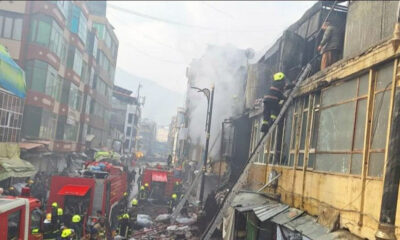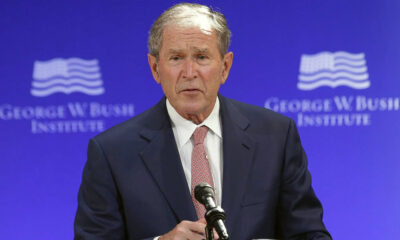Latest News
‘It’s regressive. It’s wrong’ – UK’s UN envoy on IEA hijab
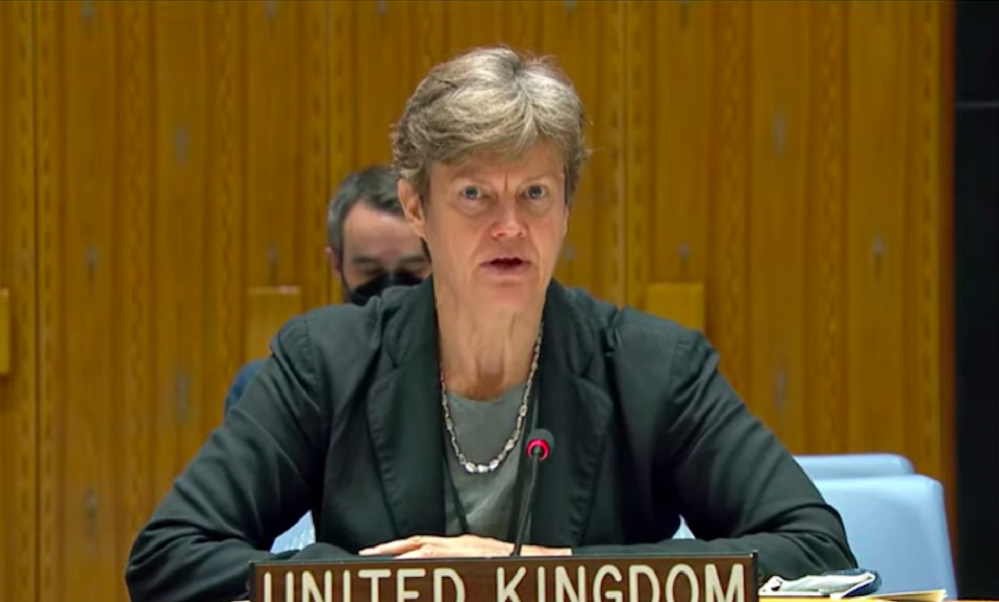
Following a United Nations Security Council meeting on Thursday about an order by the Islamic Emirate of Afghanistan (IEA) for women to cover their faces in public, the representative of the United Kingdom spoke out in strident terms against the order.
The decree marks a return to a signature policy of the IEA’s past hardline rule and an escalation of restrictions.
“It’s regressive. It’s wrong,” UK’s Ambassador to the United Nations, Barbara Woodward, said. “I think it underlines the Taliban’s (IEA) inability to lead Afghanistan out of its current economic and social and humanitarian crisis.”
U.N. special envoy for Afghanistan, Deborah Lyons, briefed the 15-member council, said Norway’s U.N. mission, which requested the closed-door meeting “to address the increased restrictions on human rights and freedoms of girls and women.”
Under the IEA’s previous rule from 1996 to 2001, women had to cover up, could not work, and girls were banned from school. But after seizing power in August, they vowed to respect women’s rights.
However in March, the IEA backtracked on their announcement that high schools would open for girls, saying they would remain closed until a plan was drawn up in accordance with Islamic law for them to reopen.
Then on Saturday the group’s supreme leader, Haibatullah Akhundzada, said that if a woman did not cover her face outside home, her father or closest male relative would be visited and face potential prison or firing from state jobs.
Most women in Afghanistan wear a headscarf for religious reasons but many in urban areas such as Kabul do not cover their faces.
“It’s hard to see that the international community and importantly the Afghan people will ever respect the Taliban (IEA) as legitimate authorities if this is the future for Afghanistan,” Woodward said.
Latest News
Afghanistan signs 30-year deal for marble mining in Daikundi

The Ministry of Mines and Petroleum of Afghanistan has signed a 30-year agreement with a private company to extract marble in Daikundi province.
Under the contract, the company will invest AFN 283 million in exploring and mining marble at the “Mesh-Uliya” site, spanning 16.74 square kilometers in central Daikundi.
Hedayatullah Badri, Minister of Mines and Petroleum, stated that the marble will be processed domestically before being exported abroad. He added that the Mesh-Uliya project is expected to create around 200 jobs, and the company is committed to supporting local communities through social initiatives.
Economic experts highlight that such investments, especially those focusing on domestic processing, are crucial for job creation, boosting exports, and strengthening the national economy. Analysts further note that the project will improve local infrastructure, expand social services, and enhance the economic and social well-being of Daikundi residents.
Since the return of the Islamic Emirate to power, efforts to develop Afghanistan’s mining sector have intensified, with multiple contracts signed in areas including cement, copper, iron, and lapis lazuli, involving both domestic and international companies.
Latest News
Passenger bus veers off Salang Highway, leaving 5 dead, dozens injured
Latest News
Major fire in Mandawi Kabul market contained, extensive losses prevented
Local shopkeepers said the fire broke out around 4 a.m.
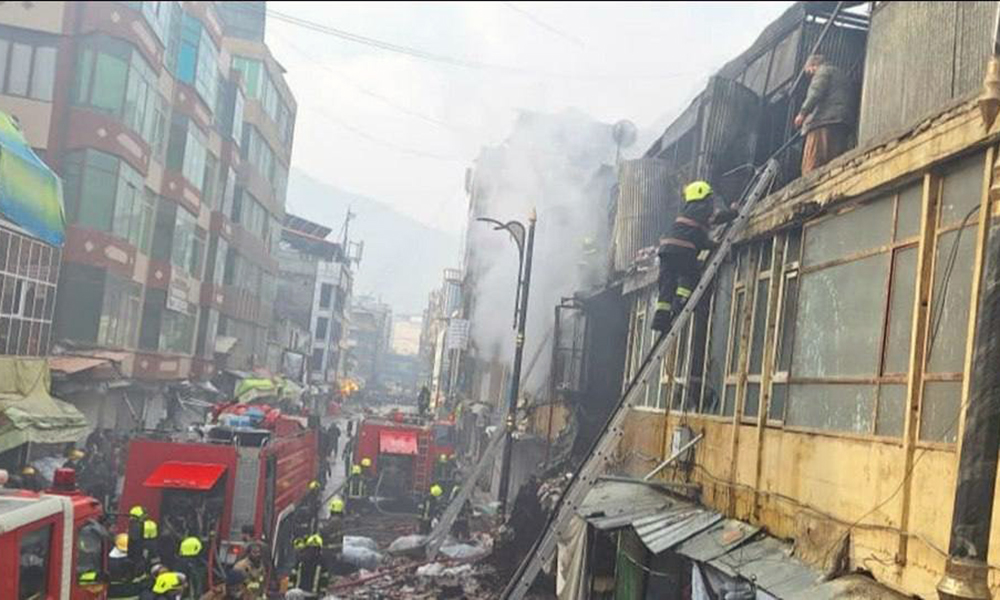
The Ministry of Interior reported that personnel from the General Directorate of Firefighting and Emergency Response successfully prevented the further spread of a fire at Mandawi market on Kabul early Sunday morning.
Abdul Mateen Qani, spokesperson for the ministry, said that the fire destroyed 10 storage facilities and 8 shops. He added that initial losses are estimated at around $700,000, but timely action by firefighting personnel saved property worth approximately $2.2 million.
Qani explained that the fire was caused by an electrical short circuit. He praised the rapid and effective containment operations, which prevented more extensive damage.
Local shopkeepers said the fire broke out around 4 a.m.
-

 International Sports4 days ago
International Sports4 days agoIPL 2026: Teams take shape after auction as franchises balance star power and depth
-

 International Sports4 days ago
International Sports4 days agoILT20: Abu Dhabi Knight Riders end Desert Vipers’ unbeaten run in dramatic one-run win
-

 Latest News2 days ago
Latest News2 days agoAfghan border forces prevent illegal entry of hundreds into Iran
-

 Latest News5 days ago
Latest News5 days agoHigh-level Kyrgyz delegation arrives in Kabul
-

 Regional4 days ago
Regional4 days agoPakistan’s military chief Asim Munir in spotlight over Trump’s Gaza plan
-

 Business4 days ago
Business4 days agoMahirood Customs leads Iran’s exports to Afghanistan
-
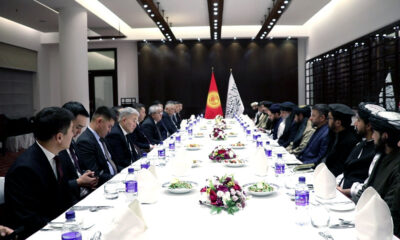
 Latest News4 days ago
Latest News4 days agoAfghanistan, Kyrgyzstan discuss expanding trade and economic cooperation
-

 World4 days ago
World4 days agoTrump adds seven countries, including Syria, to full travel ban list










